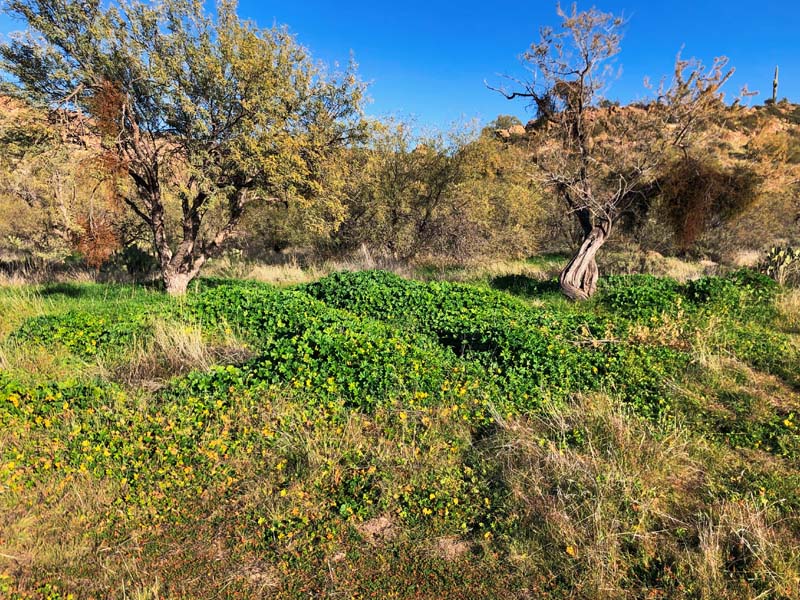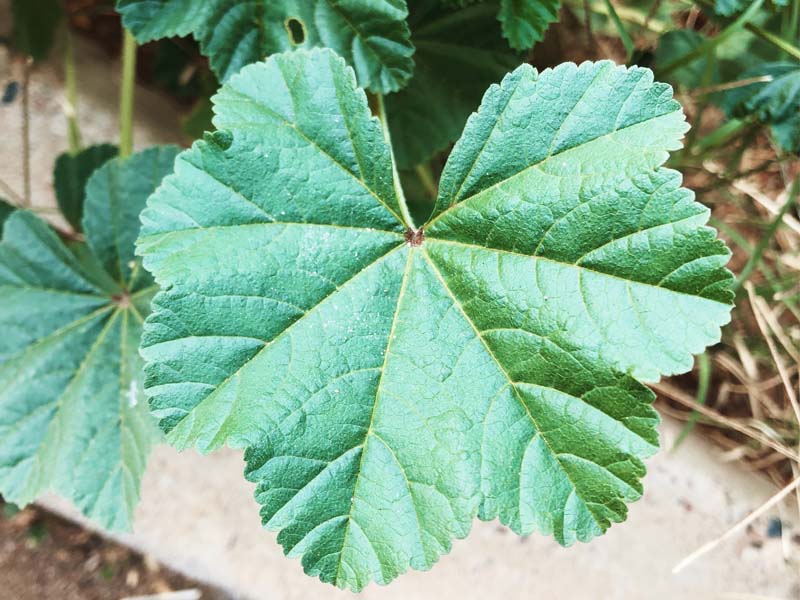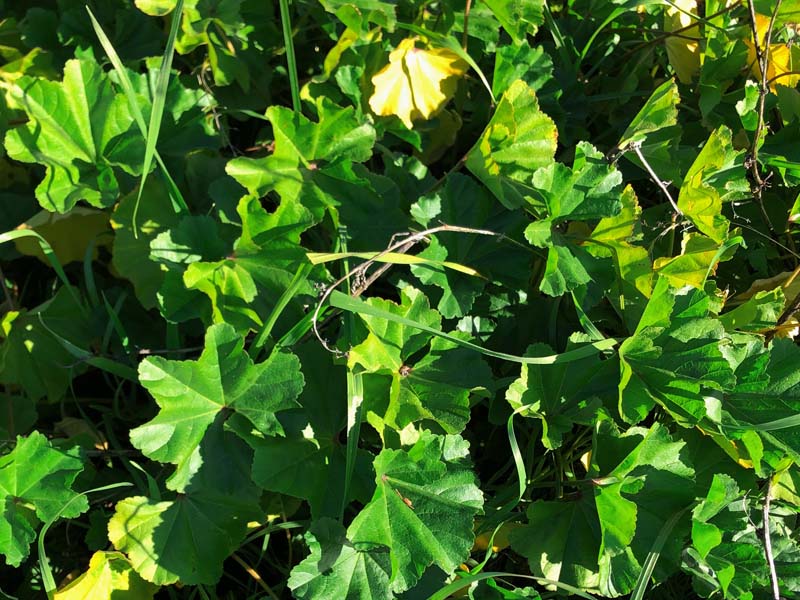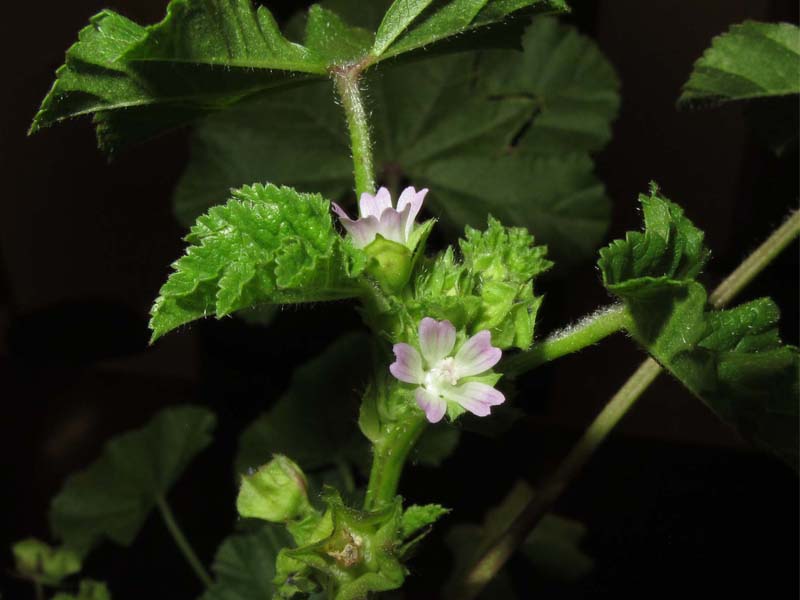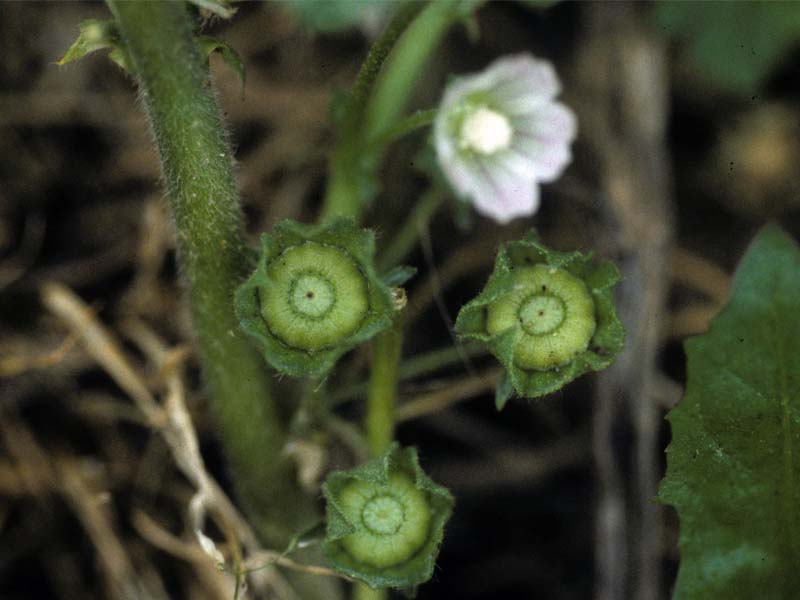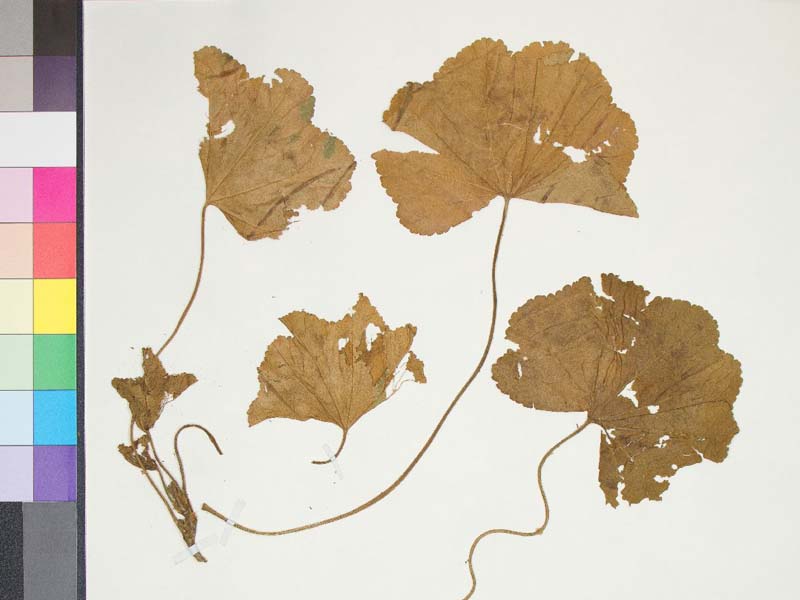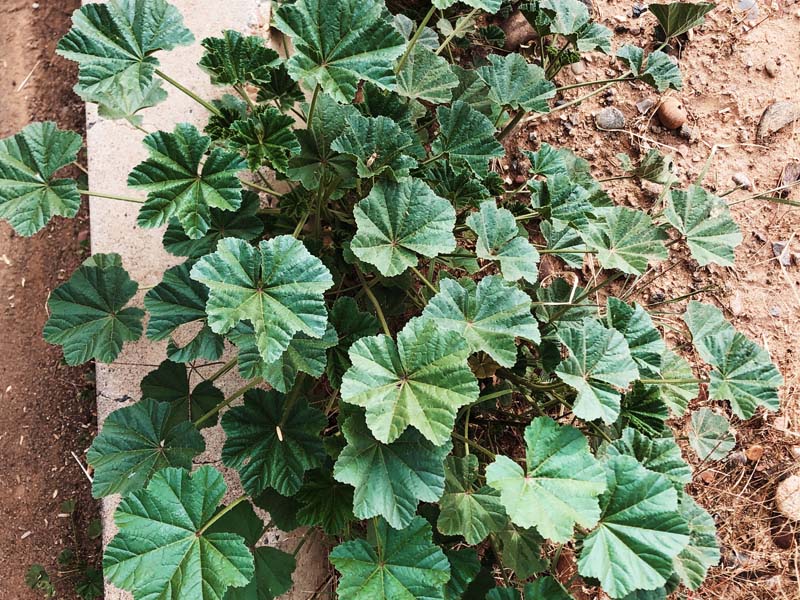
Join the January EcoQuest: Seize the Cheese
Cheeseweed, Malva Parviflora, is a somewhat low-growing forb that can form large, overtaking clumps, sometimes the size of small shrubs. It has been documented in metro Phoenix since the early 1900s.
The common name “cheeseweed” comes from the fruit resembling a tiny wheel of cheese. No, it does not taste like cheese, but are edible, along with the leaves. This plant can be eaten raw or has cooked for ages in the Mediterranean Basin, being used in ways similar to spinach. Medicinal uses have also been reported with this plant. Pliny the Elder even wrote that “a spoonful of mallow would rid one of all diseases.” Caution needs to be taken when harvesting and eating this plant, especially in urban areas. When growing in nitrogen rich soils, the leaves can accumulate high levels of nitrates, leading to nitrate poisoning. Always seek advice from a professional before using a plant for food or medicine
Ironically, cheeseweed can harm other crops. It can outcompete desirable crops and cause a decrease in yields. In addition, they can interfere with machines that are used for harvesting. This plant can be a vector for various viruses that affect crops, including tomato spotted wilt, alfalfa mosaic, yellow leaf curl, and cotton leaf crumple. Once established, they are very difficult to remove due to their long taproot and seeds that can last for years in the soil. Because it tends to grow close to farmland and pastures, it is problematic, especially in metro Phoenix where many crops are grown.
In addition, cheeseweed can crowd out native plants and is invasive in certain regions. In our area, it has become naturalized and can even be found in wilderness areas. Surprisingly, this plant has not been observed in abundance on iNaturalist.
WHERE TO OBSERVE
Anywhere within the project boundary, it can be found largely in sites with disturbed soils, vacant lots, roadsides, pastures and fields. Observations made anywhere there is not currently a group of observations are the most helpful!
EcoQuests are month long challenges that are part of the larger Metro Phoenix EcoFlora Project. You can learn more and join the Metro Phoenix EcoFlora.
**PLEASE observe COVID-19 guidelines/recommendations.**
This a great opportunity to get outdoors close to home, while navigating the complications of COVID-19. However, it is imperative that you follow the guidelines/recommendations of your local governments. Please practice social distancing, wear a mask and wash your hands.
Arizona Office of Tourism: Responsible Recreation in AZ
NO TRESPASSING
Do not remove or move natural materials (plants, animals, rocks)
Respect wildlife (do not touch, feed or disturb animals)
